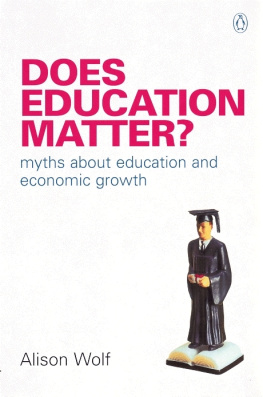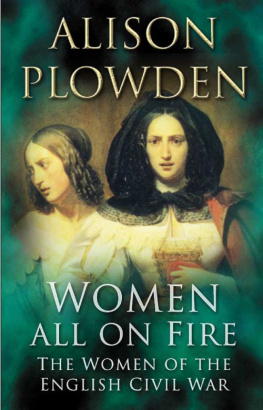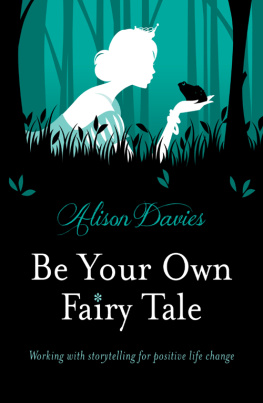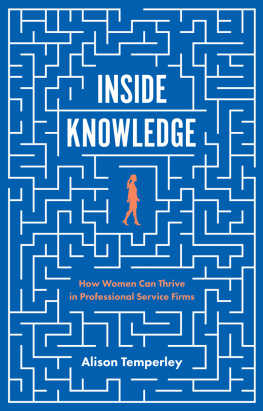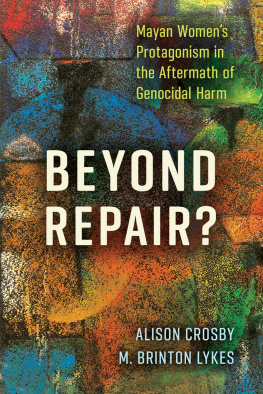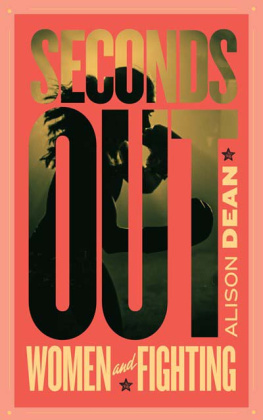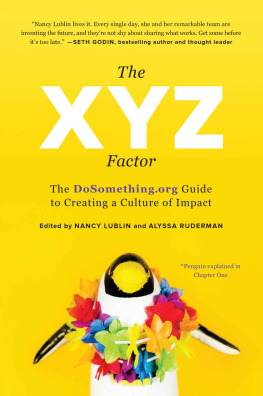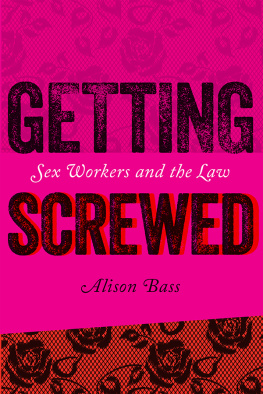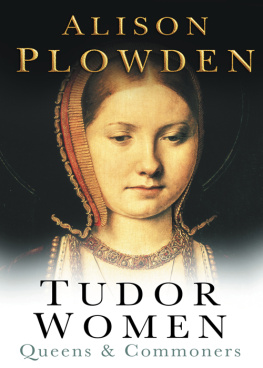Alison Wolf - The XX Factor: How Working Women are Creating a New Society
Here you can read online Alison Wolf - The XX Factor: How Working Women are Creating a New Society full text of the book (entire story) in english for free. Download pdf and epub, get meaning, cover and reviews about this ebook. year: 2013, publisher: Profile Books, genre: Home and family. Description of the work, (preface) as well as reviews are available. Best literature library LitArk.com created for fans of good reading and offers a wide selection of genres:
Romance novel
Science fiction
Adventure
Detective
Science
History
Home and family
Prose
Art
Politics
Computer
Non-fiction
Religion
Business
Children
Humor
Choose a favorite category and find really read worthwhile books. Enjoy immersion in the world of imagination, feel the emotions of the characters or learn something new for yourself, make an fascinating discovery.

- Book:The XX Factor: How Working Women are Creating a New Society
- Author:
- Publisher:Profile Books
- Genre:
- Year:2013
- Rating:4 / 5
- Favourites:Add to favourites
- Your mark:
- 80
- 1
- 2
- 3
- 4
- 5
The XX Factor: How Working Women are Creating a New Society: summary, description and annotation
We offer to read an annotation, description, summary or preface (depends on what the author of the book "The XX Factor: How Working Women are Creating a New Society" wrote himself). If you haven't found the necessary information about the book — write in the comments, we will try to find it.
Alison Wolf: author's other books
Who wrote The XX Factor: How Working Women are Creating a New Society? Find out the surname, the name of the author of the book and a list of all author's works by series.
The XX Factor: How Working Women are Creating a New Society — read online for free the complete book (whole text) full work
Below is the text of the book, divided by pages. System saving the place of the last page read, allows you to conveniently read the book "The XX Factor: How Working Women are Creating a New Society" online for free, without having to search again every time where you left off. Put a bookmark, and you can go to the page where you finished reading at any time.
Font size:
Interval:
Bookmark:

ALISON WOLF CBE is the Sir Roy Griffiths Professor of Public Sector Management at Kings College London, and director of its international centre for university policy research. She writes widely for the national press, and is a presenter for Analysis on BBC Radio 4. She has worked as a policy analyst and academic in both the UK and the USA, advised developed and developing country governments, and in 2011 completed a major governmental review of vocational education (The Wolf Review).
HOW WORKING WOMEN
ARE CREATING A NEW SOCIETY
ALISON WOLF

First published in Great Britain in 2013 by
PROFILE BOOKS LTD
3A Exmouth House
Pine Street
Exmouth Market
London EC1R OJH
www.profilebooks.com
Copyright Alison Wolf, 2013
1 3 5 7 9 10 8 6 4 2
Designed and typeset in Palatino by MacGuru Ltd
Printed and bound in Great Britain by
Clays, Bungay, Suffolk
The moral right of the author has been asserted.
All rights reserved. Without limiting the rights under copyright reserved above, no part of this publication may be reproduced, stored or introduced into a retrieval system, or transmitted, in any form or by any means (electronic, mechanical, photocopying, recording or otherwise), without the prior written permission of both the copyright owner and the publisher of this book.
A CIP catalogue record for this book is available from the British Library.
ISBN 978 1 84668 403 6
eISBN 978 1 84765 448 9
The paper this book is printed on is certified by the 1996 Forest Stewardship Council
A.C. (FSC). It is ancient-forest friendly. The printer holds FSC chain of custody SGS-COC-2061

To Martin with love
One morning in 1802, Jane Austen did something extraordinarily, breathtakingly brave. She broke off her engagement.
The previous evening she had accepted an offer of marriage from a wealthy young man, Harris Bigg-Wither. She was twenty-seven and so unlikely to receive another offer; she had no independent income. That December day, she was quite consciously depriving herself of everything that offered women status and security, namely marriage and children.
Being single and female meant a life spent in other peoples homes, dependent on their charity. If Austen reached old age, she would have no children to look after her. She would be single in a society with no state pensions or health insurance, without social security payments. She was choosing what was then the most dreaded of fates: to be a childless old maid.
Moreover, there was nothing unusual in her situation. She knew perfectly well what awaited her. For countless centuries before her, from the dawn of humankind, womens fates and fortunes had been defined in this way.
Today, just eight generations on, elite working women can barely imagine such terrors and such choices. The XX Factor is about these modern women, 70 million strong worldwide, and with the number rising daily. It is about their lives and about the choices that face them throughout adulthood; different from those of Austens time, far more extensive, but hard choices nonetheless. And it is about the growing impact of millions of highly educated, professional females on every aspect of human society.
This is also a book about women who stand in a direct line from Jane Austen and from her novels heroines. The women of The XX Factor are, like Austens characters, intelligent and educated. They are affluent and successful but they are not the super-rich. Like the family of Elizabeth Bennet, heroine of Pride and Prejudice, they move in circles that include City bankers, merchants and clergymen; and like Jane Austens own family, theirs is a world of busy professionals, such as lawyers and navy officers, as well as owners of businesses and land.
The most obvious difference between Austens world and ours is also a momentous one. Women now hold the jobs that were the preserve of husbands, brothers, sons and fathers. Women are lawyers and members of the clergy, women are bankers and business owners. In the developed world, they enter professional and business occupations just as often as men; and, among younger cohorts, they do so on equal terms.
A slow transformation of the labour market accelerated suddenly in the 1960s and 1970s. Womens expectations and behaviour were transformed as elite education opened up, job opportunities changed, family structures shifted and the Pill arrived. Only now, looking back, can we see the profound differences between the lives of college-educated women today and those of college-educated women as recent as their grandmothers generation.
We are also only gradually realising how much the impact of occupational change ripples way beyond the workplace itself. Incrementally but irreversibly, womens penetration of the worlds elites is changing both men and womens daily activities and their personal lives. In some cases, we recognise what has changed, but in many others, as this book will show, what people believe is happening is at odds with the documented facts. And one thing which we have failed to understand is that whereas through most of human history it made sense to talk about women en masse, today it very rarely does.
Until now, all womens lives, whether rich or poor, have been dominated by the same experiences and pressures. Today, elite and highly educated women have become a class apart. However, these professionals, businesswomen and holders of advanced degrees, the top 15 or 20 per cent of a developed countrys female workforce, have not moved further apart from men than in the past. On the contrary, they are now more like the men of the family than ever before in history. It is from other women that they have drawn away.
This new class of women has only bedded down and become numerous in the last thirty to forty years. Before that, across the millennia, hardly any women had the chance of a full, lifetime career. In my own family, mine was the very first generation to do so. Yet it was only while writing this book that I realised just how distinct a historic group we are, and how much I have lived a common story.
I grew up in prosperous, peaceful southern England. I went to a highly academic girls high school, where it was simply taken for granted that we would all go on to college. A tiny number of my classmates went into nursing. An equally small number went straight into teacher training. The rest of us did what we called proper, that is academic, degrees.
At one level I understood that this was new. My grandparents all left school for work in their very early teens; my parents completed secondary school but had no opportunity to go to university; my sister and I are graduates. So like millions of other post-war twentieth-century women, we were our familys first graduate generation. But because it was normal for my school and for my friends, only years later did I realise how few women, even in our baby-boomer generations did academic, let alone postgraduate degrees, or how few had done so previously.
My sister and I were first-generation graduates, but as parents we simply took it for granted that our children would must get degrees. Today, unlike in my childhood, it is axiomatic that a child from a fairly affluent family, male or female, goes to college. The explosion in student numbers has been great for women in many ways; but what is equally important is their access to the best institutions. In fact, as this book discusses, it is the single most important factor in creating the genuinely co-ed elites which have emerged, especially among younger cohorts.
Font size:
Interval:
Bookmark:
Similar books «The XX Factor: How Working Women are Creating a New Society»
Look at similar books to The XX Factor: How Working Women are Creating a New Society. We have selected literature similar in name and meaning in the hope of providing readers with more options to find new, interesting, not yet read works.
Discussion, reviews of the book The XX Factor: How Working Women are Creating a New Society and just readers' own opinions. Leave your comments, write what you think about the work, its meaning or the main characters. Specify what exactly you liked and what you didn't like, and why you think so.

